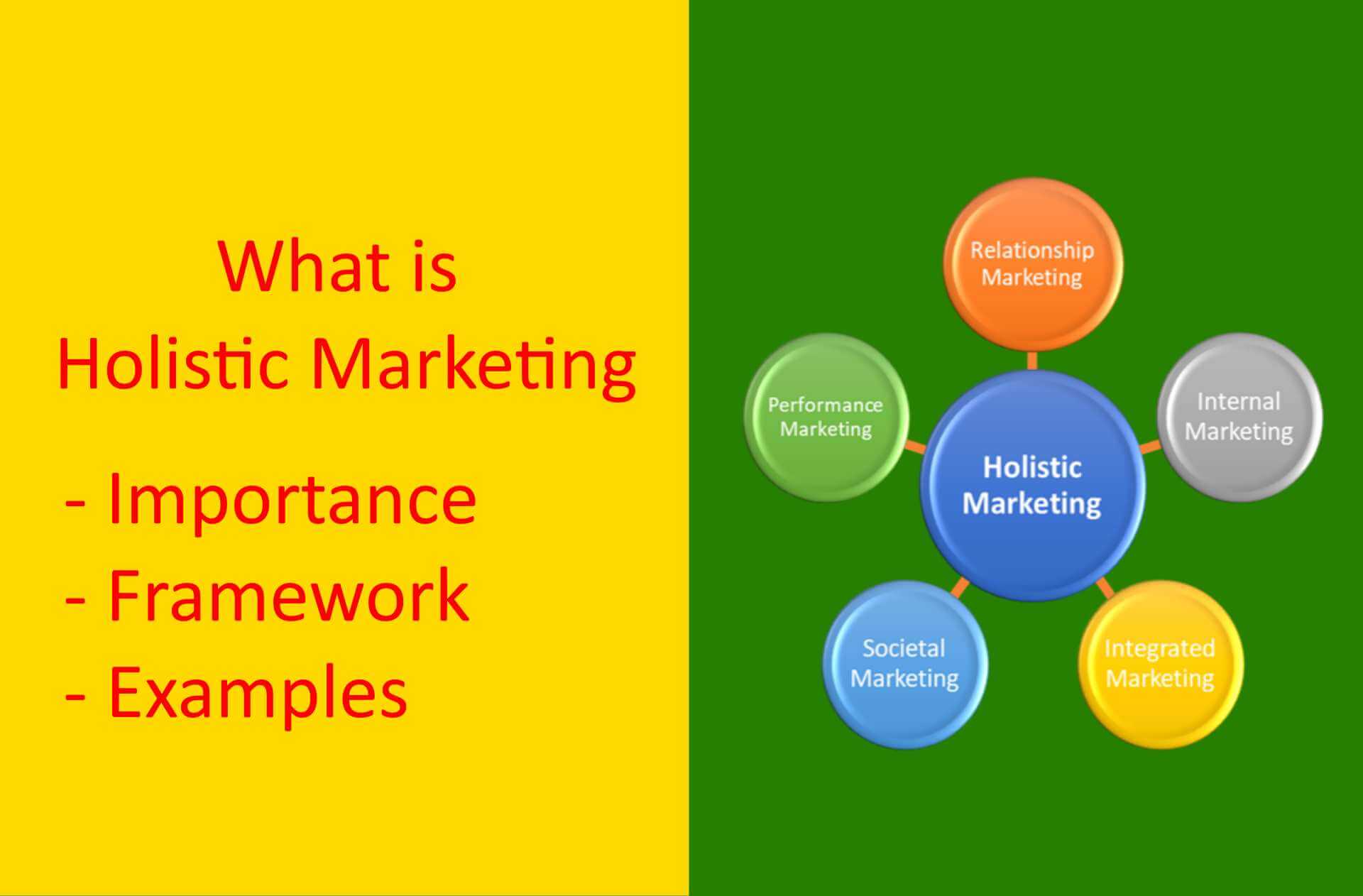Today, let's delve into the fascinating world of holistic marketing. Many of us may have heard the term before, but what exactly does it mean? How does it impact businesses and consumers alike? Let's explore these questions and more as we uncover the importance, components, and examples of holistic marketing.
The Holistic Marketing Concepts

One of the key aspects of holistic marketing is the idea of integrated marketing. This means that all aspects of marketing, including advertising, sales promotion, public relations, and direct marketing, work together in harmony to create a cohesive and consistent message for consumers. By taking a holistic approach, companies can ensure that their marketing efforts are aligned and reinforce each other, leading to a more impactful and memorable brand presence.
What is Holistic Marketing?

Another important component of holistic marketing is relationship marketing. This involves building strong, long-term relationships with customers based on trust and mutual respect. By focusing on the needs and desires of customers, companies can create meaningful connections that result in loyalty and repeat business.
When it comes to implementing holistic marketing strategies, there are several key components to consider. These include:
1. Customer Centricity
At the core of holistic marketing is a deep understanding and focus on the customer. By putting the customer at the center of all marketing efforts, companies can tailor their products and services to meet the specific needs and preferences of their target audience. This not only leads to higher customer satisfaction but also fosters loyalty and advocacy.
2. Integrated Marketing Communications
Integrated marketing communications involve the seamless integration of all marketing channels to deliver a consistent message to consumers. By ensuring that all communication channels work together harmoniously, companies can create a unified brand image that resonates with their target audience.
3. Consistent Branding
Consistent branding is another essential component of holistic marketing. By maintaining a consistent brand image across all touchpoints, companies can build trust and credibility with consumers. This consistency helps consumers recognize and remember the brand, leading to increased brand awareness and loyalty.
4. Ethical Marketing Practices
Ethical marketing practices are an integral part of holistic marketing. By conducting business in an ethical and transparent manner, companies can build trust with consumers and establish themselves as reputable and trustworthy brands. This trust is essential for long-term success and sustainability in today's competitive marketplace.
Now that we've explored the key components of holistic marketing, let's take a closer look at some examples of companies that have successfully implemented holistic marketing strategies.
Apple

One of the most well-known examples of holistic marketing is Apple. The tech giant is renowned for its seamless integration of products, services, and marketing efforts to create a cohesive and compelling brand experience. From its innovative product design to its sleek and minimalist marketing campaigns, Apple has mastered the art of holistic marketing.
Nike

Nike is another great example of a company that has successfully implemented holistic marketing strategies. The sportswear giant leverages its iconic brand image and powerful storytelling to connect with consumers on an emotional level. By focusing on the values of inspiration, innovation, and empowerment, Nike has created a strong and loyal following of customers around the world.
As we can see from these examples, holistic marketing is a powerful approach that can help companies build strong relationships with customers, create memorable brand experiences, and drive long-term success. By focusing on the key components of holistic marketing and adopting ethical and customer-centric practices, companies can differentiate themselves in the marketplace and stand out from the competition.
In conclusion, holistic marketing is not just a trend but a fundamental philosophy that can transform the way businesses engage with consumers. By taking a holistic approach to marketing, companies can create meaningful connections, build trust and loyalty, and ultimately drive business growth and success. So, the next time you think about your marketing strategy, consider the holistic approach and see the difference it can make for your brand.
Comments